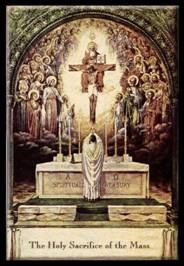
Defilement in the Cathedral and Its Meaning
02-25-2024Weekly ReflectionFr. Leonard F. Villa…. the radical subversion of normal human life in the name of a paranoid metaphysical delusion. Edward Feser (see below)
You may have read about or seen this on the internet. It was reported worldwide: At a funeral service on February 15 at St. Patrick’s Cathedral in New York City, men dressed as women and women dressed as men turned out to honor Cecilia Gentili.
Gentili is a man who falsely claimed to be a woman. He was an illegal alien, a drug addict, prostitute, trans-activist and atheist .This was the correct depiction of what happened in the Cathedral on the website of the Catholic League for Religious and Civil Rights. https://www.catholicleague.org/trans-activists-defile-st-patricks-cathedral/ Catholic journalist Philip Lawler put it this way: The grotesque “funeral service” for Cecilia Gentilli was a carefully planned ploy to use a renowned Catholic church as the stage for an event glorifying sexual perversity. Sadly, it worked—and the cathedral was desecrated in the process. And because it was successful, we can all be sure that other LGBT activists will try it again. And again and again.
READ MORE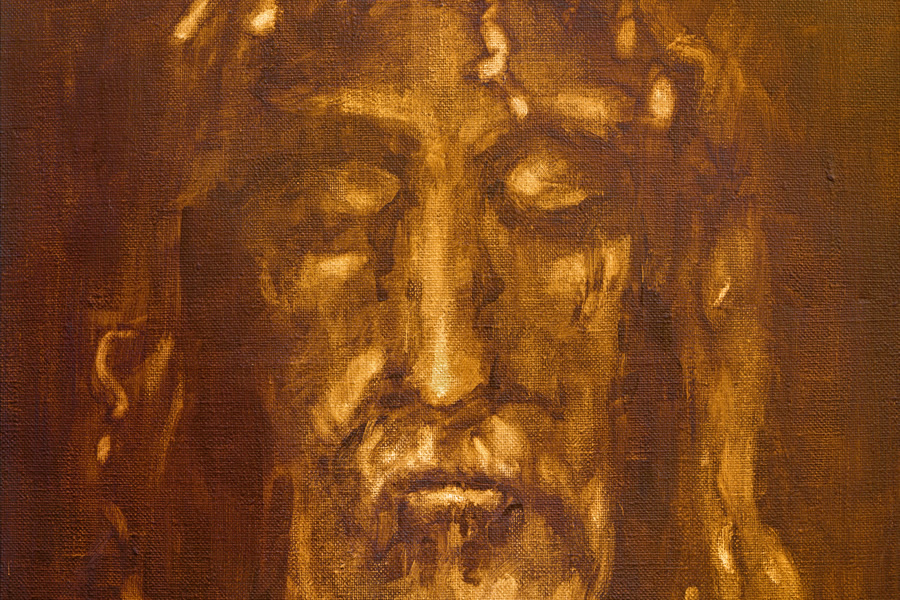
Lent & Devotion to the Holy Face of Jesus
02-18-2024Weekly ReflectionFr. Leonard F. VillaThe primary purpose of the devotion is to make reparation for sins against the first three commandments: Denial of God, Blasphemy, and the profanation of Sundays and Holy Days.
Devotion to the Holy Face was revealed by Jesus to Sr. Marie of St. Peter (1816-1848) a Carmelite nun of Tours in France. The devotion to the Holy Face of Jesus, based on the life and writings of Sr. Marie of St. Peter, was eventually approved by Pope Leo XIII in 1885 who established the devotion as an Arch-confraternity for the whole world.
READ MORE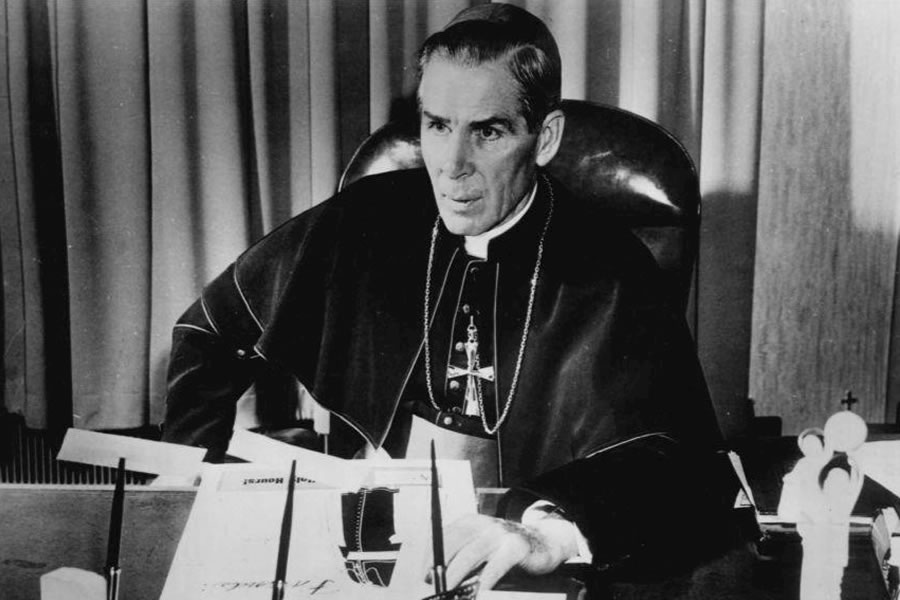
Counterfeits……….
02-11-2024Weekly ReflectionFr. Leonard F. VillaA common tactic of Satan is to imitate or counterfeit the things of God in order to make himself appear to be like God. What is commonly referred to as the “unholy trinity,” is described vividly in Revelation 12 and 13. . The Holy Trinity consists of God the Father, the Son Jesus Christ, and the Holy Spirit. Their counterfeits in the unholy trinity are Satan, the Antichrist, and the False Prophet. While the Holy Trinity is characterized by infinite truth, love, and goodness, the unholy trinity portrays the diametrically opposite traits of deception, hatred, and unadulterated evil. Satan is the anti-God, the Beast from the sea is the anti-Christ, and the beast from the earth or the False Prophet is the anti-Spirit. This unholy trinity will persecute believers and deceive many others, resulting in their eternal death. But God’s kingdom will prevail. Daniel 7:21–22 states, “I was watching; and the same horn was making war against the saints, and prevailing against them, until the Ancient of Days came, and a judgment was made in favor of the saints of the Most High, and the time came for the saints to possess the kingdom.”
READ MORE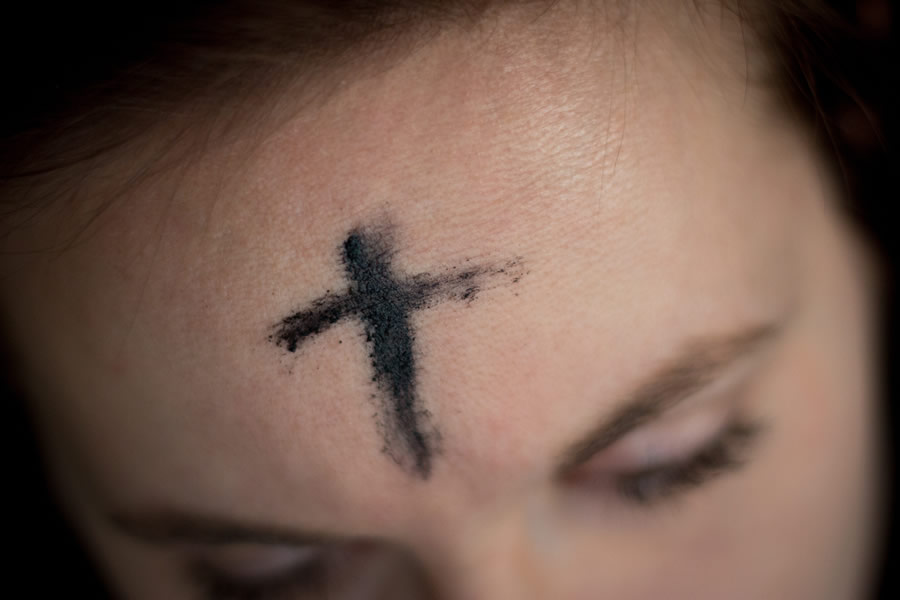
Why Pre-Lent or Shrovetide?
02-04-2024Weekly ReflectionFr. Leonard F. VillaPre-Lent in the West
Shrovetide, also known as the Pre-Lenten Season, is the Christian period of preparation before the beginning of the liturgical season of Lent. The preparation marks seventy, sixty, and fifty days before Easter. Ash Wednesday begins the forty days of Lent. The word shrove is a form of the English word shrive, which means to give absolution for someone's sins by way of Confession and doing penance. Thus Shrove Tuesday was named after the custom of Christians to be "shriven" before the start of Lent.
READ MORE
Septuagesima: Farewell Alleluia. A New Year of Grace
01-28-2024Weekly ReflectionFr. Leonard F. VillaPius Parsch once cogently argued that the Liturgical Year - the Church's Year of Grace - doesn't begin with Advent Sunday, but with Septuagesima Sunday! For at Septuagesima, the Matins Lesson begin "In the beginning...", with Genesis chapter one, verse one. The sober liturgy proceeds through the account of Man's Creation and Fall, and then through the Patriarchs and God's continual call of them back from doom to salvation - at Sexagesima, Noë and the Flood; at Quinquagesima, the call of Abraham.
READ MORE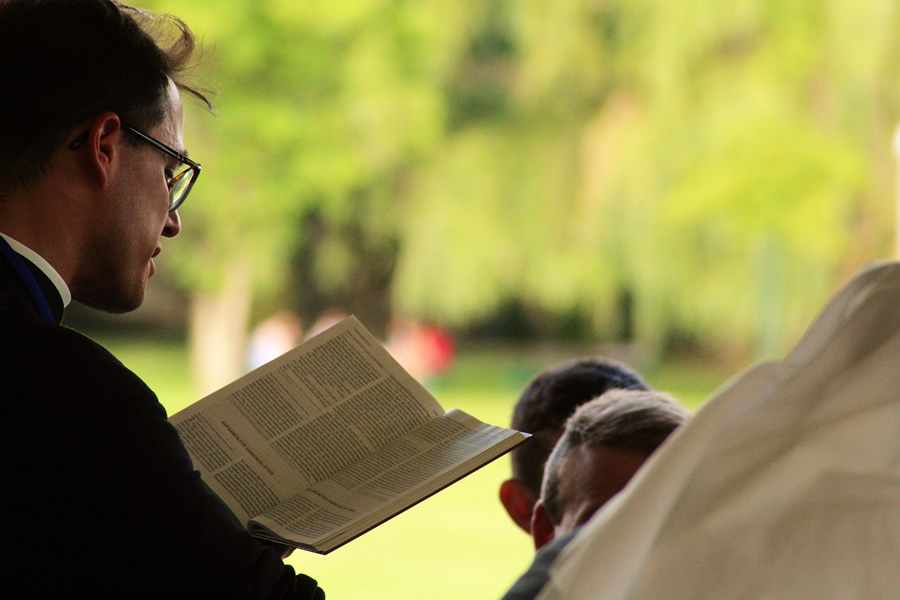
The Continuing Crisis: Particular Battles
01-21-2024Weekly ReflectionFr. Leonard F. VillaThere is and has been a continuing crisis in the Church of long duration. Bishop Fulton Sheen predicted years ago a future destructive anti-church or counter church. More on that in a future essay. The crisis involves those, who no longer believe the doctrinal and moral teachings of the Catholic Church, while claiming to be Catholic; and the effort within the Church to conform her morality and teaching to the world’s agendas especially in the area of marriage and sexuality. The crisis involves the metastasis of a false teaching called modernism condemned by St. Pius X in the early part of last century.
READ MORE
What Is the Cause of Unbelief?
01-14-2024Weekly ReflectionFr. Leonard F. VillaThe Gospel reveals this to us: ….Light has come into the world, but people loved darkness instead of light because their deeds were evil. 20 Everyone who does evil hates the light, and will not come into the light for fear that their deeds will be exposed. John. 3:19-20 Unbelief is sinful because the world is able to believe: the Light has come into the world and has shone in the darkness, to people is given the possibility of exiting the darkness and come into the light. But only he who freely desires it arrives at the light and people often prefer darkness to the light. What is the reason for this mistaken choice?
READ MORE
The Apotheosis of Sports
01-07-2024Weekly ReflectionFr. Leonard F. VillaThe god Ever Before Our Eyes (edited) …(E)verything, now restrains itself and anxiously hopes for just two things: bread and circuses Juvenal Satire 10 (Quote added)
... One recent campaign asked riders on New York City subway trains, “When you count the loves of your life, is sports first or second?” Another, seen at city bus stops, queried, “Without sports, who would we follow?” And, “Without sports, would anyone believe in miracles?” The terrorists who murdered Israeli athletes at the 1972 Olympic Games were crazed. But when they called sports “the religion of the Western world” and the Olympics its “most sacred ceremony,” they might have been onto something.
READ MORE
“A Christmas Sermon for Pagans”
12-31-2023Weekly ReflectionC. S. LewisStrand magazine, Vol. 112, Issue 672, December 1946
Writing religion for sceptics has made C. S. Lewis a best-seller. His books on Christianity—chief among them “The Screwtape Letters”—sell better, and read more easily, than most crime stories. This sermon is a characteristic piece of writing by the Oxford don who has become the most entertaining missionary of our time. When I was asked to write a Christmas sermon for Pagans I accepted the job lightheartedly enough: but now that I sit down to tackle it I discover a difficulty. Are there any Pagans in England for me to write to? I know that people keep on telling us that this country is relapsing into Paganism. But they only mean it is ceasing to be Christian. And is that at all the same thing? Let us remember what a Pagan or Heathen (I use the words interchangeably) really was.
READ MORETake Action to stop doctor-assisted suicide in NYS
12-28-2023From the desk of Fr. VillaPressure is being brought again to pass an Assisted Suicide Bill in New York State. Please contact your senator and assemblyman to oppose any assisted suicide bill. This is part of the culture of death along with the wholesale taking of the lives of unborn children in our country.
The Hippocratic Oath that doctors take proclaims: “I will keep [the sick] from harm and injustice. I will neither give a deadly drug to anybody who asked for it, nor will I make a suggestion to this effect.” This is an essential precept for a flourishing civil society. No one, especially a doctor, should be permitted to kill intentionally, or assist in killing intentionally, an innocent neighbor.
READ MORE
The FBI: Anti-Catholic?
12-24-2023Weekly ReflectionFr. Leonard F. VillaThe reporting that the FBI was targeting traditional Catholics has led to an investigation by the House of Representatives. Also taking up this matter and commenting on the House-Investigation is the Catholic League for Religious and Civil Rights. Some of its commentary:
-There is a hate group inside the FBI that needs to be purged. It is targeting practicing Catholics and is relying on the Southern Poverty Law Center, Salon and The Atlantic to dig up dirt on them. The House Report on this issue is startling.
READ MORE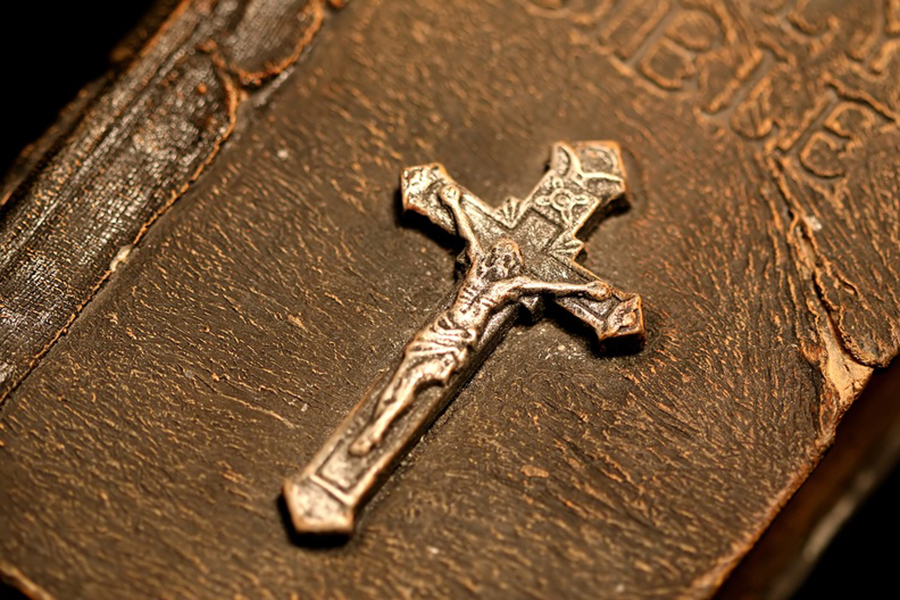
Wisdom and Catholic Teaching from Cardinal Gerhard Müller
12-17-2023Weekly ReflectionCardinal Gerhard MüllerCardinal Müller is a theologian and formerly was the head of the Dicastery for the Doctrine of the Faith. He recently gave an interview on various topics giving his views, but more importantly, clarifying Catholic teaching! Here are some excerpts. You can read the whole interview here: https://www.catholicworldreport.com/2022/11/20/infallibilityand-the-limits-of-papal-power-an-interview-cardinal-gerhardmuller/ What follows are excerpts from the interview:
READ MORE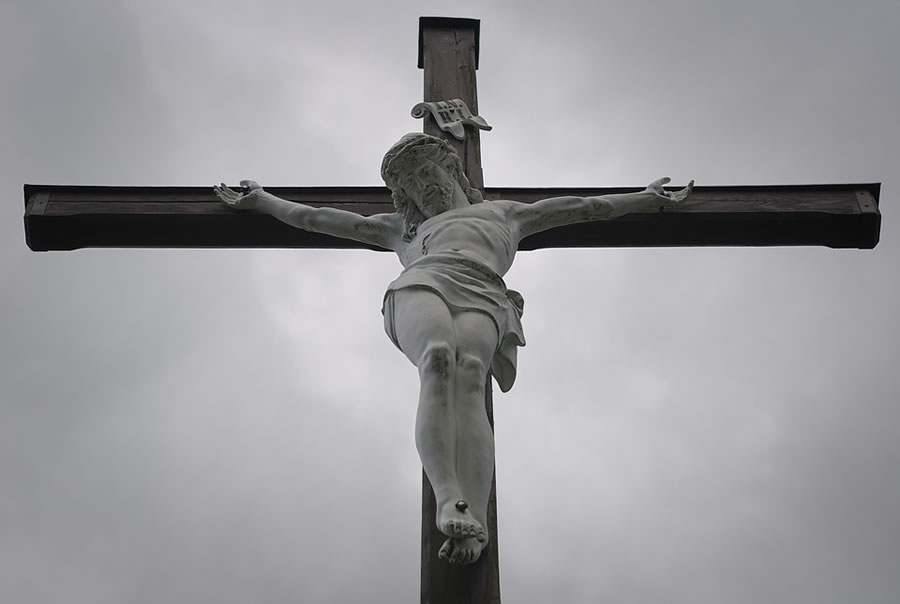
The Pornography Pandemic II
12-10-2023Weekly ReflectionPeter KleponisInterview with Peter Kleponis, a Catholic psychotherapist who specializes in marriage and family therapy, men's issues and pornography addiction recovery.
ZENIT: If a person came to you and asked, "Am I addicted to pornography?" how would you define this for him?
Kleponis: A person who uses it on a regular basis is not necessarily addicted. What I ask is: Do you find yourself drawn to it? Do you find yourself thinking a lot about it? Do you find yourself looking forward to coming home from work at night and getting online and looking at the pornography? Do you rely upon it to deal with the stress of loneliness, male insecurity or job pressures? Is it very difficult for you to go several days without looking at pornography? If you're answering yes to these questions you very well may be addicted to pornography.

The Pornography Pandemic….
12-03-2023Weekly ReflectionPeter KleponisPeter Kleponis, a Catholic psychotherapist specializes in marriage and family therapy, men's issues and pornography addiction recovery. He gave this interview with ZENIT news:
ZENIT: How does this use compare between men and women? Kleponis: Currently about 83% of pornography addicts are men, and 17% are women. For women, it's the chat rooms rather than the visual pornography that they're looking at. Men and women are wired differently. Men are visually stimulated.
READ MORE